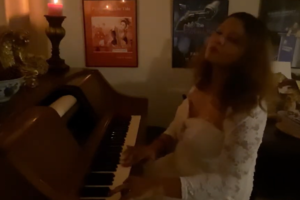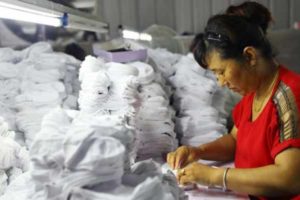The political turbulence in Thailand has continued to escalate in the build-up to the election, with a political party likely to be forcibly dissolved, the military suspending a critical TV station and the king’s sister forced to apologise after she was disqualified from running for prime minister.
The latest incident in a week that has stunned Thailand, saw the election commission recommend the Thai Raksa Chart party be dissolved by the constitutional court, preventing it from running in the election, for violating the rules of a constitutional monarchy. The constitutional court is expected to approve the election commission’s request.
It came just hours after Princess Ubolratana Rajakanya Sirivadhana Barnavadi released a statement on Instagram on Tuesday night, apologising for causing “problems” for the Thai people.
On Monday, the election commission had already ruled to disqualify Ubolratana as a prime minister candidate for the Thai Raksa Chart party in the upcoming election on 24 March. Ubolratana’s ban did not come as a surprise after the strongcondemnation of her candidacy by her brother King Maha Vajiralongkorn last week, who decreed that her bid was “inappropriate” as royalty should be “above politics”.
“I’m sorry that the sincere intention to work to help the country and our Thai people had caused problems that had seemed unlikely to occur in this day and age,” Ubolratana wrote on Instagram, followed by the hashtag #howcomeitsthewayitis.
The recommendation for the dissolution of Thai Raksa Chart, a newly-formed party closely aligned with ousted ex-premier Thaksin Shinawatra, came as a huge blow to the party, who, in a fight for their political life, wrote to the election commission on Wednesday morning, stating that the forced dissolution of the party would contravene Thai law. However, their pleas fell of deaf ears.
If the constitutional court agrees to dissolve Thai Raksa Chart, its executives could be given a 10 year or even a lifetime ban from both voting and running in elections.
The dissolution of Thai Raksa is a further indicator that Thaksin’s gamble in nominating the princess as their only prime ministerial candidate, without apparent full approval of the king, was a gamble that did not pay off and will likely hurt the chances of pro-Thaksin parties gaining a majority in the March election. Thaksin lives in exile but still hold considerable power and influence in Thai politics.
Several prominent members of Pheu Thai, the party Thaksin founded, switched over to Thai Raksa when it was formed last year.
Thai Raksa has pitched itself to appeal to younger, progressive voters. In several constituencies, Pheu Thai did not put up candidates in order to make way for Thai Raksa candidates, to increase their chances of a majority in parliament. However, it now means that many constituencies are now without a pro-Thaksin party candidate.
The saga has played into the hands of the military junta government, the National Council for Peace and Order (NCPO), who are seeking to maintain their power through the newly-formed pro-military party, Palang Pracharath. NCPO leader Prayut Chan-Ocha is running as their candidate for prime minister.
In a move possibly emboldened by the turmoil and uncertainty enveloping pro-Thaksin parties, the junta also announced a 15 day suspension of Voice TV, one of the more progressive Thai TV stations which is owned by Thaksin’s children and often gives a platform to those critical of the military.
The move has been seen as an attempt by the junta to closely control all public discourse in the build up to the election. They have already enforced draconian rules around campaigning on social media.
Voice TV executive Mekin Petplai condemned the move. “Voice TV is of the view it has repeatedly been treated unfairly” said Mekin, adding that the station would fight the NBCT’s “abuse of power.”





















